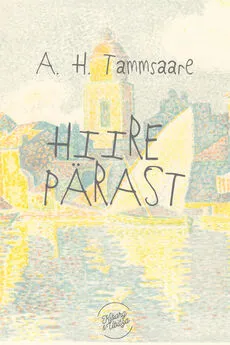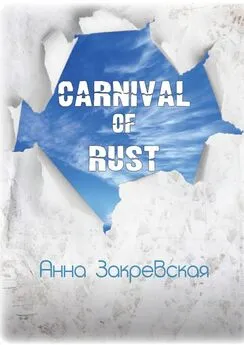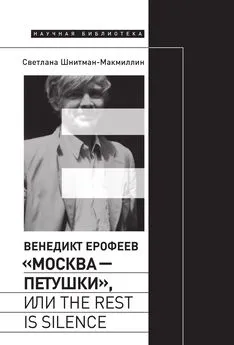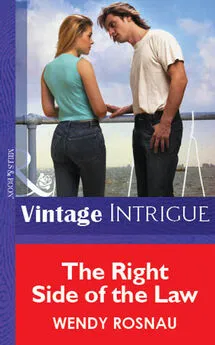W. Ainsworth - Rookwood
- Название:Rookwood
- Автор:
- Жанр:
- Издательство:неизвестно
- Год:неизвестен
- ISBN:нет данных
- Рейтинг:
- Избранное:Добавить в избранное
-
Отзывы:
-
Ваша оценка:
W. Ainsworth - Rookwood краткое содержание
Rookwood - читать онлайн бесплатно полную версию (весь текст целиком)
Интервал:
Закладка:
Father Ambrose was, perhaps, the only being whom Eleanor disliked. She had felt an unaccountable antipathy towards him, which she could neither extirpate nor control, during their long and close intimacy. It may be necessary to mention that her religious culture had been in accordance with the tenets of the Romish Church, in whose faith (the faith of her ancestry) her mother had continued; and that Father Ambrose, with whom she had first become acquainted during the residence of the family near Bordeaux, was her ghostly adviser and confessor. An Englishman by birth, he had been appointed pastor to the diocese in which they dwelt, and was, consequently, a frequent visitor, almost a constant inmate, of the château; yet, though duty and respect would have prompted her to regard the father with affection, Eleanor could never conquer the feelings of dislike and distrust which she had at first entertained towards him; a dislike which was increased by the strange control in which he seemed to hold her mother, who regarded him with a veneration approaching to infatuation.
It was, therefore, with satisfaction that she bade him adieu. He had, however, followed his friends to England under a feigned name (as, being a recusant Romish priest, and supposed to have been engaged in certain Jesuitical plots, his return to his own country was attended with considerable risk), and had now remained domesticated with them for some months. That he had been in some way, early in life, connected with a branch of the house of Rookwood, Eleanor was aware (she fancied he might have been engaged in political intrigue with Sir Reginald, which would have well accorded with his ardent, ambitious temperament), and the knowledge of this circumstance made her doubly apprehensive lest the nature of his present communication should have reference to her lover, towards whose cause the father had never been favourable, and respecting whose situation he might have made some discovery, which she feared he might use to Ranulph's disadvantage.
Wrapped in a long black cloak, with a broad-brimmed hat drawn closely over his brows, it was impossible to distinguish further of the priest's figure and features beyond the circumstance of his height, which was remarkable, until he had reached the carriage-window, when, raising his hat, he disclosed a head that Titian might have painted, and which, arising from the dark drapery, looked not unlike the visage of some grave and saturnine Venetian. There was a venerable expanse of forehead, thinly scattered with hair, towering over black penthouse-like brows, which, in their turn, shadowed keen penetrating eyes; the temples were hollow, and blue veins might be traced beneath the sallow skin; the cheek-bones were high, and there was something in the face that spoke of self-mortification; while the thin livid lips closely compressed, and the austere and sinister expression of his countenance, showed that his self-abasement, if he had ever practised it, had scarcely prostrated the demon of pride, whose dominion might still be traced in the lines and furrows of his haughty physiognomy. The father looked at Mrs. Mowbray, and then glanced suspiciously at Eleanor. The former appeared to understand him.
"You would say a word to me in private," said Mrs. Mowbray; "shall I descend?"
The priest bowed assent.
"It is not to you alone that my mission extends," said he, gravely; "you are all in part concerned; your son had better alight with you."
"Instantly," replied the major. "If you will give your horse in charge to the postilion, we will attend you at once."
With a feeling of renewed apprehension, connected, she knew not why, with Ranulph, Eleanor beheld her relatives descend from the carriage; and, in the hope of gaining some clue from their gestures to the subject of their conversation, she watched their motions as narrowly as her situation permitted. From the earnest manner of the priest, and the interest his narrative seemed to excite in his hearers, it was evident that his communication was of importance.
Presently, accompanied by Father Ambrose, Mrs. Mowbray returned to the carriage, while the major, mounting the priest's horse, after bidding a hasty adieu to his sister, adding, with a look that belied the consolation intended to be conveyed by his words, that "all was well," but without staying to offer her any explanation of the cause of his sudden departure, rode back the way they had just traversed, and in the direction of Rookwood. Bereft of the only person to whom she could have applied for information, though dying with curiosity and anxiety to know the meaning of this singular interview, and of the sudden change of plans which she felt so intimately concerned herself, Eleanor was constrained to preserve silence, as, after their entrance into the carriage, her mother again seemed lost in painful reflection, and heeded her not; and the father, drawing from his pocket a small volume, appeared intently occupied in its perusal.
"Dear mother," said Eleanor, at length, turning to Mrs. Mowbray, "my brother is gone—"
"To Rookwood," said Mrs. Mowbray, in a tone calculated to check further enquiry; but Eleanor was too anxious to notice it.
"And wherefore, mother?" said she. "May I not be informed?"
"Not as yet, my child—not as yet," replied Mrs. Mowbray. "You will learn all sufficiently early."
The priest raised his cat-like eyes from the book to watch the effect of this speech, and dropped them instantly, as Eleanor turned towards him. She had been about to appeal to him, but having witnessed this look, she relinquished her scarce-formed purpose, and endeavoured to divert her tristful thoughts by gazing through the glimmering medium of her tears upon the soothing aspect of external nature—that aspect which, in sunshine or in storm, has ever relief in store for a heart embittered by the stony coldness of the world.
The road, meanwhile, led them through a long woody valley, and was now climbing the sides of a steep hill. They were soon in the vicinity of the priory, and of the gipsies' encampment. The priest leaned forward, and whispered something in Mrs. Mowbray's car, who looked towards the ruined shrine, part of the mouldering walls being visible from the road.
At this moment the clatter of a horse's hoofs and the sound of a loud voice commanding the postilion, in a menacing tone, to stop, accompanied by a volley of imprecations, interrupted the conference, and bespoke the approach of an unwelcome intruder, and one whom all, too truly, feared would not be readily dismissed. The postilion did his best to rid them of the assailant. Perceiving a masked horseman behind him, approaching at a furious rate, he had little doubt as to his intentions, and Turpin, for it was our highwayman, soon made his doubts certainties. He halloo'd to him to stop; but the fellow paid no attention to his command, and disregarded even the pistol which he saw, in a casual glimpse over his near side, presented at his person. Clapping spurs into his horse's flanks, he sought succour in flight. Turpin was by his side in an instant. As the highwayman endeavoured to catch his reins, the lad suddenly wheeled the carriage right upon him, and but for the dexterity of Turpin, and the clever conduct of his mare, would inevitably have crushed him against the roadside. As it was, his left leg was slightly grazed. Irritated at this, Turpin fired over the man's head, and with the butt-end of the pistol felled him from his seat. Startled by the sound, and no longer under the governance of their rider, the horses rushed with frantic violence towards a ditch, that bounded the other side of the highway, down which the carriage was precipitated, and at once overturned. Turpin's first act, after he had ascertained that no mischief had been occasioned to those within, beyond the alarm incident to the shock, was to compel the postilion, who had by this time gained his legs, to release the horses from their traces. This done, with the best grace he could assume and, adjusting his mask, he opened the carriage, and proceeded to liberate the captives.
"Beg pardon, ma'am," said he, so soon as he had released Mrs. Mowbray; "excessively sorry, upon my soul, to have been the cause of so much unnecessary alarm to you—all the fault, I assure you, of that rascal of a postilion; had the fellow only pulled up when I commanded him, this botheration might have been avoided. You will remember that, when you pay him—all his fault, I assure you, ma'am."
Receiving no reply, he proceeded to extricate Eleanor, with whose beauty the inflammable highwayman was instantly smitten. Leaving the father to shift for himself, he turned to address some observation of coarse gallantry to her: but she eluded his grasp, and flew to her mother's side.
"It is useless, sir," said Mrs. Mowbray, as Turpin drew near them, "to affect ignorance of your intentions. You have already occasioned us serious alarm; much delay and inconvenience. I trust, therefore, that beyond our purses, to which, though scantily supplied, you are welcome, we shall sustain no molestation. You seem to have less of the ruffian about you than the rest of your lawless race, and are not, I should hope destitute of common humanity."
"Common humanity!" replied Turpin: "bless you, ma'am, I'm the most humane creature breathing—would not hurt a fly, much less a lady. Incivility was never laid to my charge. This business may be managed in a few seconds; and as soon as we have settled the matter, I'll lend your stupid jack-boy a hand to put the horses to the carriage again, and get the wheels out of the ditch. You have a banker, ma'am, I suppose in town—perhaps in the country; but I don't like country bankers; besides, I want a little ready cash in Rumville—beg pardon, ma'am, London I mean. My ears have been so stunned with those Romany patterers, I almost think in flash. Just draw me a cheque; I've pen and ink always ready: a cheque for fifty pounds, ma'am—only fifty. What's your banker's name? I've blank cheques of all the best houses in my pocket; that and a kiss from the pretty lips of that cherry-cheek'd maid," winking to Eleanor, "will fully content me. You see you have neither an exorbitant nor uncivil personage to deal with."
Eleanor shrank closer towards her mother. Exhausted by previous agitation of the night, greatly frightened by the shock which she had just sustained, and still more alarmed by the words and gestures of the highwayman, she felt that she was momentarily in danger of fainting, and with difficulty prevented herself from falling. The priest, who had succeeded in freeing himself from the carriage, now placed himself between Turpin and the ladies.
"Be satisfied, misguided man," said the father, in a stern voice, offering a purse, which Mrs. Mowbray hastily extended towards him, "with the crime you have already committed, and seek not to peril your soul by deeper guilt; be content with the plunder you now obtain, and depart; for, by my holy calling, I affirm to you, that if you advance one footstep toward the further molestation of these ladies, it shall be at the hazard of your life."
"Bravo!" exclaimed Turpin. "Now this is what I like; who would have thought the old autem-bawler had so much pluck in him? Sir, I commend you for your courage, but you are mistaken. I am the quietest man breathing, and never harm a human being; in proof of which, only look at your rascal of a postilion, whom any one of my friends would have sent posthaste to the devil for half the trouble he gave me. Easy as I am, I never choose to be balked in my humours. I must have the fifty and the buss, and then I'm off, as soon as you like; and I may as well have the kiss while the old lady signs the cheque, and then we shall have the seal as well as the signature. Poh—poh—no nonsense! Many a pretty lass has thought it an honour to be kissed by Turpin."
Читать дальшеИнтервал:
Закладка:




![Rakot - Апостол Новой Веры. Том 1 [СИ]](/books/1061842/rakot-apostol-novoj-very-tom-1-si.webp)
![Rakot - Укуренный мир. Том 3 [СИ]](/books/1073038/rakot-ukurennyj-mir-tom-3-si.webp)




